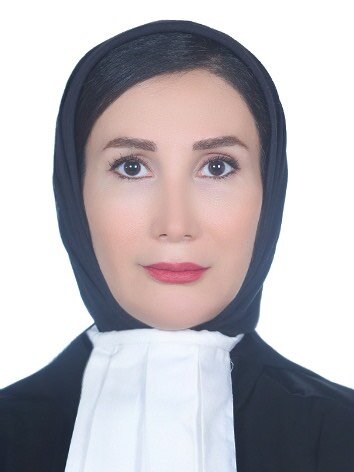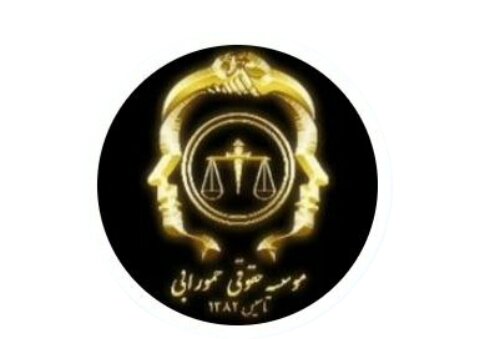Best Nonprofit & Charitable Organizations Lawyers in Tehran
Share your needs with us, get contacted by law firms.
Free. Takes 2 min.
List of the best lawyers in Tehran, Iran
About Nonprofit & Charitable Organizations Law in Tehran, Iran
Nonprofit and charitable organizations in Tehran, Iran, play a crucial role in the social and economic welfare of communities. These organizations are involved in various activities, including education, healthcare, social services, and cultural preservation. The Iranian legal framework provides specific regulations and guidelines for establishing and operating nonprofit organizations, ensuring that they function transparently and effectively to serve their intended purposes. Understanding the legal requirements is essential for anyone looking to establish or manage a nonprofit organization in Tehran.
Why You May Need a Lawyer
Engaging with a lawyer who specializes in nonprofit and charitable organizations is essential for several reasons:
- **Registration and Compliance:** Legal assistance may be required to navigate the complex process of registering a nonprofit organization and ensuring compliance with local regulations.
- **Governance Structure:** Lawyers can help set up a robust governance structure, including drafting bylaws and other essential documents.
- **Taxation Issues:** Nonprofits may qualify for tax exemptions, but understanding and applying for these exemptions can be legally challenging.
- **Contracts and Partnerships:** Legal advice is crucial when drafting contracts or entering partnerships with other entities to avoid future legal complications.
- **Dispute Resolution:** In cases of internal conflicts or disputes with third parties, legal intervention can help mediate or resolve issues efficiently.
Local Laws Overview
Tehran, like the rest of Iran, has specific laws governing nonprofit and charitable organizations:
- **Formation Regulations:** To establish a nonprofit in Tehran, it is essential to comply with registration requirements, which include drafting a constitution, providing financial projections, and specifying the organization’s purpose.
- **Supervisory Authorities:** Nonprofit organizations must operate under the supervision of relevant governmental bodies, which ensure that these entities adhere to legal obligations.
- **Financial Reporting:** Regular financial reporting to the authorities is mandatory to promote transparency and accountability.
- **Licensing:** Certain nonprofit activities might require additional licensing, depending on the field and scope of operations.
Frequently Asked Questions
What types of nonprofit organizations are allowed in Iran?
Nonprofit organizations in Iran can take various forms such as charities, foundations, socio-cultural institutes, and non-governmental organizations (NGOs), each with its specific legal requirements.
How do I start a nonprofit organization in Tehran?
To start a nonprofit organization, you must develop a clear plan, convene a founding meeting, draft a constitution, and apply for registration with the relevant governmental body.
Are nonprofits eligible for tax exemptions in Iran?
Yes, nonprofits can apply for tax exemptions. However, they must adhere to specific criteria and regulations to maintain such status.
What are the reporting requirements for nonprofits in Tehran?
Nonprofits must submit regular financial and activity reports to demonstrate transparency and compliance with the legal framework.
What legal documents are required to form a nonprofit?
Essential documents include the organization’s constitution or bylaws, the list of founding members, and financial plans or budgets.
Can a foreign national start a nonprofit in Iran?
Foreign nationals can participate in forming nonprofits, but they must comply with additional regulatory requirements related to foreign investments and activities.
What is the role of a board of directors in an Iranian nonprofit?
The board of directors oversees the nonprofit’s operations, ensuring that strategies align with the organizational goals and legal requirements.
How can a nonprofit organization dissolve in Tehran?
Dissolution requires a formal process, including settling debts, distributing remaining assets according to the law or bylaws, and notifying the registration authority.
What penalties can a nonprofit face for non-compliance?
Noncompliance can result in penalties, including fines, the revocation of operating licenses, or legal action against the organization or its directors.
Are there specific donation laws for Iranian nonprofits?
Yes, there are regulations on how nonprofits can solicit and use donations, ensuring funds are used transparently and responsibly.
Additional Resources
For further guidance, the following resources can be invaluable:
- **The Ministry of Interior:** Overseeing nonprofit registration and regulation.
- **Iran Social Security Organization:** Providing insights into governance and financial planning.
- **Local legal firms:** Specializing in nonprofit law and offering personalized legal advice.
- **Chambers of Commerce and Industries:** Offering resources and seminars for nonprofit leadership.
Next Steps
If you require legal assistance regarding nonprofit and charitable organizations in Tehran, consider the following steps:
- **Research and Contact Legal Experts:** Look for law firms or legal experts specializing in nonprofit law in Tehran.
- **Gather Necessary Information:** Collect all relevant documents and information about your organization or intended establishment.
- **Consultation:** Schedule a consultation with a legal expert to discuss your specific needs and receive tailored advice.
- **Compliance Checks:** Regularly review your organization’s actions and governance structures to ensure compliance with local laws and regulations.
Lawzana helps you find the best lawyers and law firms in Tehran through a curated and pre-screened list of qualified legal professionals. Our platform offers rankings and detailed profiles of attorneys and law firms, allowing you to compare based on practice areas, including Nonprofit & Charitable Organizations, experience, and client feedback.
Each profile includes a description of the firm's areas of practice, client reviews, team members and partners, year of establishment, spoken languages, office locations, contact information, social media presence, and any published articles or resources. Most firms on our platform speak English and are experienced in both local and international legal matters.
Get a quote from top-rated law firms in Tehran, Iran — quickly, securely, and without unnecessary hassle.
Disclaimer:
The information provided on this page is for general informational purposes only and does not constitute legal advice. While we strive to ensure the accuracy and relevance of the content, legal information may change over time, and interpretations of the law can vary. You should always consult with a qualified legal professional for advice specific to your situation.
We disclaim all liability for actions taken or not taken based on the content of this page. If you believe any information is incorrect or outdated, please contact us, and we will review and update it where appropriate.

















